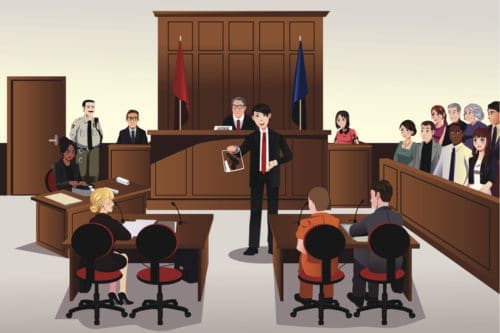Evidence of negligence is key for most personal injury cases. Learn more about it here.

If you’ve been hurt by another person or entity, you may file a lawsuit against them to seek compensation for your damages. A personal injury attorney can guide you through the process, but you may be wondering how to prove that the other person or entity was at fault. In most personal injury cases, you must show that the defendant was negligent — and that this negligence caused your damages. This article will explain what negligence is, and how it applies in different cases.
What Is Negligence?
Negligence is the failure to provide a reasonable level of care that someone of ordinary prudence would exercise in the same situation. In personal injury cases, that means that either a person or an organization (like business, school, or the government) did not do what it should have done to prevent an accident or injury. Most personal injury cases involve an element of negligence. For example:
- A person drives drunk, resulting in an accident that causes injury or death.
- A business does not fix a crumbling sidewalk, resulting in a bad fall.
- A person texts while driving, causing a bad car accident.
- A company makes a product that has a dangerous design that causes injuries.
If negligence leads to an injury or death, the responsible party (or parties) may be prosecuted for any of damages that they caused.
Negligence in Car Accident Cases
Car accidents can happen in a number of ways, but many are caused by negligence on the part of one or more drivers. A driver may be negligent if they were texting and driving, running a red light, or driving under the influence of drugs or alcohol before the accident occurred. If the person who caused the accident could have prevented it by using reasonable care — by not using their cell phone while driving, for example, or by driving the speed limit — then they may be considered negligent. Depending on the facts of the case, the negligent person will be responsible for all or part of the damages that their actions caused to other people involved in the accident. If any driver was reckless or careless, then he may be liable for any injuries that resulted from the accident.
Negligence in Dangerous Products Cases
The products we use every day can sometimes cause harm. Manufacturers are required to make items that will perform in a reasonably safe manner. For example, a company that manufactures propane grills is expected to make these grills without any dangerous defects. If that company makes a grill that could explode due to faulty wiring, it may be responsible for any damages or injuries that result when someone is injured by an exploding grill. If a manufacturer does not use reasonable care when making a product, then it will be considered negligent.
Negligence in Slip and Fall Cases
Just because a person slips and falls on someone else’s property does not necessarily mean that they can be compensated for their injuries. It is only when the property owner was proved to be negligent that they will be held liable for the slip and fall. For example, if a floor is wet at a store and employees do not put up signs warning customers about it, then they may be responsible for any injuries caused by falls on the wet floor. But if there were signs up, and a customer falls because she was distracted and did not pay attention to the sign, then the store will not likely be considered negligent. Whether or not a property owner was negligent depends on the specific facts of each slip and fall case.
Personal injury cases are highly fact-specific. That is why it is so important to speak to an experienced personal injury attorney if you have been injured and believe it may be due to someone else’s negligence. At the Law Offices of Larry H. Parker, our attorneys are skilled at handling a wide variety of personal injury cases — from car and truck accidents, slip and fall cases, defective products cases, and more. Contact our office today at 800-333-0000 or info@larryhparker.com to learn more about how we can help you. Schedule your free initial consultation today.



